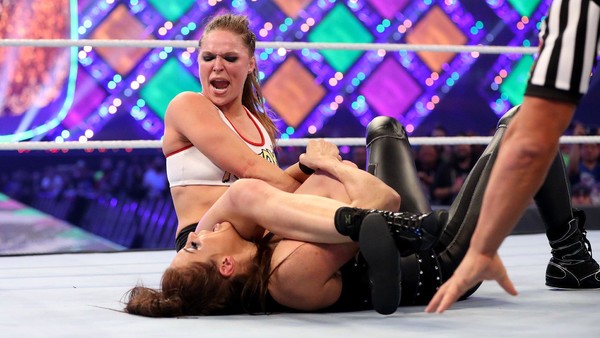Exposing The AEW Bias Myth

He is absolutely, relentlessly buried as a weirdo unable to keep his story straight. He, of course, being Dave Meltzer. His star rating system is considered inherently biased, but it’s his attempt to review a match using objective parameters: crowd heat, technical precision, invention, how much of the work was germane to the storyline, and psychology. Meltzer prefers to watch CMLL more than even New Japan, but recognises that the technical and storytelling ability of Kazuchika Okada is unparalleled.
It’s a flawed system—it doesn’t factor in the magic of, to use the most incriminating example, Hulk Hogan—but it’s an attempt to capture the quality of a match, and people sh*t on it with ‘six stars in the Tokyo Dome’ jokes. That’s where objectivity gets you. Even citing that as an example of objectivity is a trigger for accusations of bias.
There is no tested, objective, true means of analysing the quality of professional wrestling. Opinion, therefore, shapes everything, even when it does not.
It’s all a matter of taste, ultimately. Full disclosure: I prefer AEW’s vision for pro wrestling over WWE’s sports entertainment philosophy. I don’t like the impromptu matchmaking because it’s hard to suspend disbelief, for example. This is an opinion. This isn’t bias because it isn’t fixed; when WWE does sports entertainment correctly, it is exceptional. As a performer, I dislike WWE’s Stephanie McMahon more than most, but I enjoyed the hell out of her WrestleMania 34 performance. It was exceptional. The story was easy to understand, and told so well that fans were desperate to see it unfold. Stephanie’s timing and facials were so incredible; without them, Ronda Rousey’s awesome closing blitzkrieg wouldn’t have been anywhere near as effective. I allowed myself to enjoy something I was resistant to. Bias would have precluded this.
WWE hasn’t done anywhere near enough of that in recent years, and here’s that refrain again: it is reflected in literally every consumer-driven metric.
AEW isn’t perfect, and when it isn’t perfect, coverage reflects this. The tag team rules are either loosely enforced by design, or they aren’t, and Jim Ross has a right to his grievances. Sometimes, the tag team matches are spot-fests that could benefit from more focus. The win/loss record system is nowhere near immune to scrutiny. The Women’s division is hardly Elite. Dark Order? More like Dork Order, to use the sort of WWE creative verbiage that is so bad you can't not take the piss out of it, which exacerbates this whole narrative.
But this criticism is rarely acknowledged, because too many WWE loyalists have a preexisting determination to reflexively bury any praise directed to another company.
So who is biased?